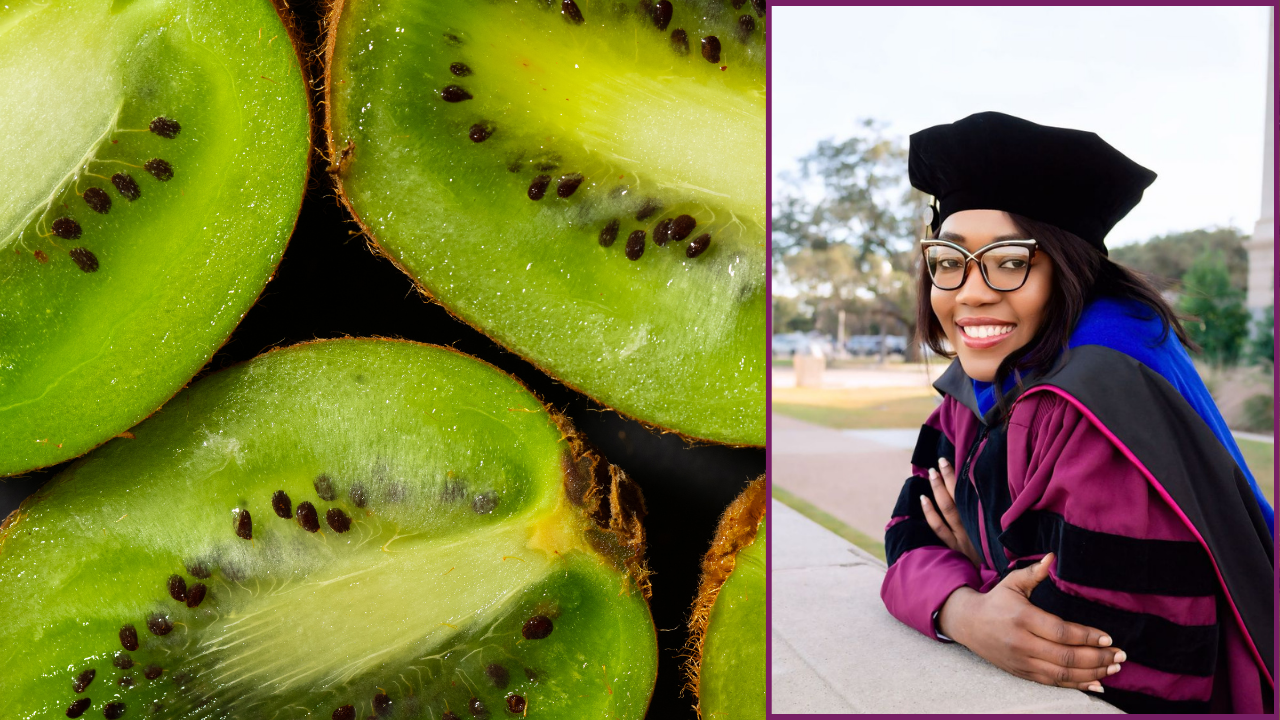Kiwifruits Now Stand A Chance Against Canker Plant Disease!

Amaka Ifeduba PhD | Contributor on Agribusiness-related Topics
Are you an African diaspora entrepreneur looking to tap into the immense agricultural potential of Africa? Have you ever wondered how agribusiness can not only generate significant profits but also play a crucial role in addressing food insecurity and creating much-needed job opportunities? If so, you’re in the right place.
Learn with AClasses Academy and improve yourself and your business skills.
Africa’s agricultural sector offers boundless possibilities for those ready to embrace innovation, leverage resources, and make a lasting impact on both the continent and the global market.
But how can African diaspora entrepreneurs seize these opportunities to help transform Africa’s agricultural landscape and unlock their entrepreneurial potential?
In this article, Dr. Amaka Ifeduba, our agribusiness contributor, shares her expertise on how African diaspora entrepreneurs can thrive by harnessing the power of agribusiness in Africa.
Passionate about bridging the gap between agriculture and human development, Dr. Ifeduba combines scientific communication, public speaking, and mentorship to help individuals excel in securing graduate school placements and navigating the complexities of global agribusiness.
See also Self-Confidence and Public Speaking in Business – The Indispensable Duo
Later, we will explore how her insights can benefit African diaspora agribusiness entrepreneurs, giving you the tools to unlock new opportunities and make a meaningful difference.
Stay tuned for a journey filled with inspiration, starting with the insights from Dr. Amaka Ifeduba.
Understanding Canker Plant Disease
In kiwifruit orchards worldwide, the bacterial plant pathogen Pseudomonas syringae pv. actinidiae biovar 3 (Psa3) causes devastating canker disease. The global impact of this disease, with symptoms including blossom necrosis, cane dieback, trunk/cane bleeding, cankerous growths, and necrotic leaf spots, is a cause for concern and engagement. To address this challenge, scientists have turned to gene editing as a promising solution.
A recent study published in Plant Cell & Environment revealed that NbPTR1a gene confers resistance against Pseudomonas syringae pv. actinidiae biovar 3 (Psa3) infection in kiwifruit.
Using gene editing technologies, the researchers developed an approach to bolster kiwifruit’s natural defenses against Psa3.
They discovered that the nucleotide-binding leucine-rich repeat receptor NbPTR1 recognizes the Psa3 effector protein HopZ5 originally identified to trigger immunity in Nicotiana benthamiana.
Through precise genetic modifications, they successfully introduced NbPTR1 into susceptible kiwifruit varieties, including A. chinensis var. chinensis ‘Hort16A’. After evaluating the impact of overexpressing the NbPTR1a gene, the study found that the transgenic plants expressing NbPTR1a showed moderate to high survival rates and resistance to Psa3, compared to the wild type.
Plants expressing NbPTR1a conferred resistance to Psa3 in immature tissue culture and mature glasshouse-grown plants.
See also Scientists Uncover Circular RNA’s Role in Boosting Rice Defense against Bacterial Blight
The use of gene editing technologies to enhance crop resilience against pathogens like Psa3 marks a significant advancement in agricultural innovation.
Strengthening kiwifruit’s natural defenses is a crucial step in ensuring global sustainable production, as it enables farmers to safeguard yields against disease outbreaks. Read the journal article in Plant, Cell & Environment for more information.
With that insight in mind, let’s delve into why the relentless work of professionals like Dr. Amaka Ifeduba are crucial in tackling the challenges facing agribusiness across Africa.
Why You Should Care As African Diaspora Entrepreneurs
As African diaspora entrepreneurs set their sights on the continent’s agricultural sector, there are essential lessons that can pave the way for both success and sustainability. By embracing innovation, prioritizing human development, and harnessing global opportunities, they have the potential to turn challenges into thriving, profitable ventures.
Here are three critical takeaways that can help you tap into Africa’s agribusiness landscape and make a lasting impact on the continent’s future:
Harnessing Innovation for Sustainable Agricultural Growth
African diaspora entrepreneurs can gain from understanding how innovation—ranging from gene editing to cutting-edge technologies—can enhance agricultural resilience.
Just as scientists have used gene editing to combat kiwifruit diseases, entrepreneurs in Africa can apply similar breakthroughs to improve crop yields, fight environmental threats, and modernize agricultural practices to meet both growing demands and the challenges of climate change.
Bridging Agriculture with Human Development
Dr. Amaka Ifeduba’s work emphasizes how agribusiness can address broader societal issues, such as food security and job creation. Entrepreneurs must recognize that agribusiness is not just a pursuit of profit but an avenue for contributing to Africa’s economic and social development.
See also African Rice Evolution and Technology: Building a Legacy of Collaboration, Innovation
By focusing on initiatives that align with sustainable development goals, African diaspora entrepreneurs can build successful businesses while making a meaningful difference in the lives of people across the continent.
Leveraging Global Opportunities for Growth
As Dr. Ifeduba helps professionals secure international opportunities and graduate school placements, African diaspora entrepreneurs should recognize the importance of global networks and knowledge-sharing.
Building connections across borders can unlock funding, partnerships, and expertise that will allow African agribusinesses to scale effectively. By tapping into these resources, entrepreneurs can elevate their ventures and play a key role in Africa’s agricultural transformation.
By adopting these strategies—driven by innovation, human development, and global collaboration—African diaspora entrepreneurs can unlock the vast potential of Africa’s agribusiness sector, creating both lasting impact and profitable growth.
Learn with AClasses Academy and improve yourself and your business skills.




